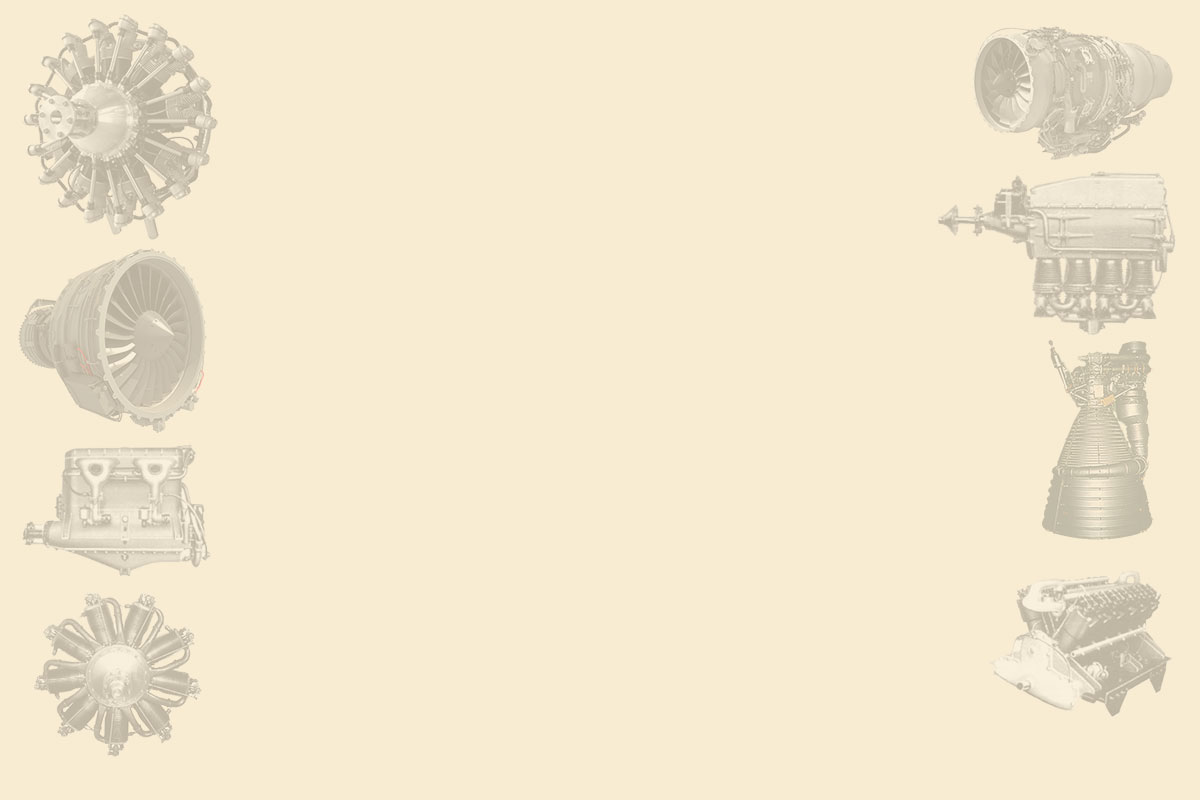Updated: 19-Nov-2018
FUERZA HUMANA (Human Force)
(International)
It has always been thought of making flights by human-force propulsion, either by swinging wings or driving a propeller that moved the device.
-This was accomplished already. But ideas and trials have always been.
-We present an example of the innumerable that there have been.
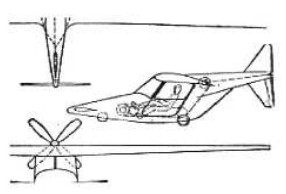
“With human force”
From Appendix A4 / 6: Pedaled vehicles are constantly appearing in general, but now we show perhaps one of the first, if not the first idea of flying only with man's own effort.
-The drawing below appeared in an old ad of the ESSO oil company and its aviation products.
-It belongs to the brand's book known as "Esso History of Air Locomotion" with the aim of attracting attention.
-It is Frenchman Besnier's point of view in the year 1678.
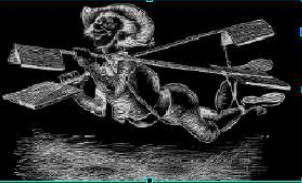
“Drawing by Phillipe Féty” (PeT)
-Each pole has two woods hinged at their ends, so that they close when they go up and open when they go down.
-In 1960 appeared a UK project of a glider with a propeller driven by pedals like a bicycle.
From Appendix 6: There have always been cases of attempted flight facilitated by human effort without further external energy.
-We now have another example based on a bicycle using the pedals to drive a propeller.
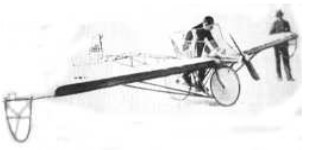
“Example of a pedal trial”
-In the US and the MIT (Massachusetts Institute of Technology), together with the Smithsonian Institution, they sponsored trials of a flight system powered by human force.
-It had a simple design and and is lightweight, as we see in the following illustration.
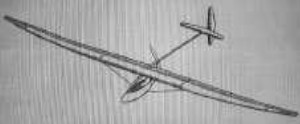
“The MIT-NASM”
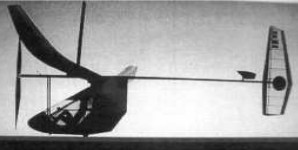
“Similar to the one above, pull-propeller”
-Curious invention by American John P. Holmes from Kansas, of a machine for "air navigation".
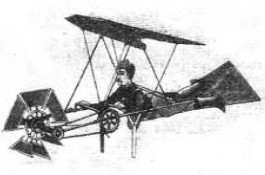
“Holmes's machine”
-It has no propeller but a paddle wheel moved by hand and that when turning at the top they are in "flag-shape" and through the lower part they are like the hands of a swimmer.
-With only human effort, we have mechanisms with pedals to spin propellers like the one of the man "hanging" from the bag of a small airship.
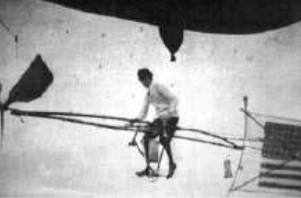
“American dirigible with pedals”
-There are ornithopters driven by muscular force as is the case of the man in the below illustration.
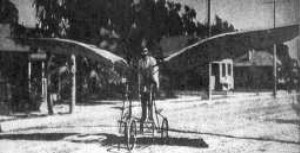
“There are also ornithopters without engine”
-There are countless examples of human propulsion.
-I am receiving several drawings of airplanes running with pedals that have been tried out in various parts of the world.
-Some of them are described as Skycycles.
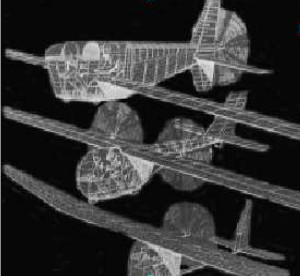
"Three Skycycles of different shapes" (PiP)
-The first two are two-seaters.
-The first one is the Toucan and the second the Ottawa.
-The next one is the Liverpuffin single-seater.
-The wingspan is standing out for more lift and little wing load.
-For example, the first is 123 feet in wingspan.
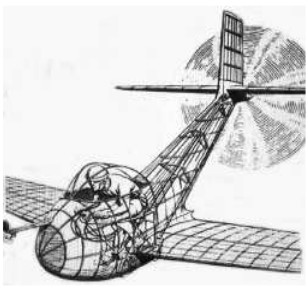
“The beautiful Linnet” (PiP)
-The Linnet III shown is a Japanese machine made by students of Nihon University. It weighs 110 lbs.
-Another plane project driven by human force was the Gossamer Albatross by Paul MacCready.
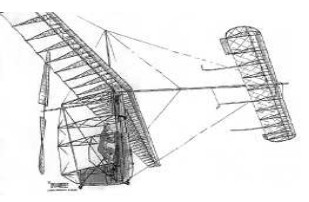
“Drawing of the Gossamer Albatross in Flight”
-It was extremely light due to the design by this aerodynamic expert, who won the Kremer Prize with another device called Gossamer Condor, in 1977.
-It is driven by pedals with chain transmission. The pilot is in vertical position with simple maneuvering controls.
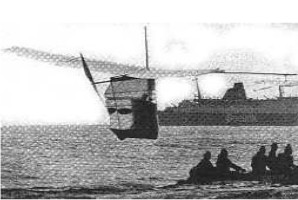
“Accompanied channel crossing”
-To win the prize for crossing the English Channel, the Albatross was made. It was light weight with Mylar coating and was very braced to give consistency to the whole.
-Every wing rib weighed only 2 ounces, for example.
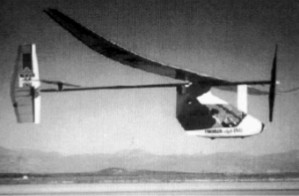
“The Daedalus”
-The Daedalus has been made in collaboration with American NASA.
-Other examples besides the Gossamerf Condor, Albatros and the Daedalus are: the Monarch B, the Musculair I and II, and the Mic LT Eagle.
From Appendix 12: In the German magazine Flugsport we found an example of human traction in that country.
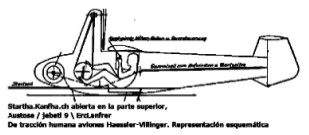
“With pedals driving a propeller”
